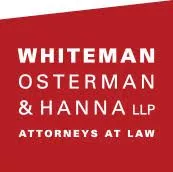- within Real Estate and Construction topic(s)
- in Asia
- in Asia
- in Asia
- within Tax topic(s)
On December 21, 2024, New York passed an Act outlining the registration and record keeping requirements for short-term rental units in certain municipalities throughout the State. This Act also amended NY Tax § 1200 to permit local municipalities to impose and collect an occupancy tax on short-term rentals, where such a tax was already imposed on hotels.
About two months later, on February 28, 2025, New York amended the December 21, 2024, Act. These 2025 amendments made extensive edits to the NY Real Property and Tax Laws, and specifically, among other things, created "covered jurisdictions." The term "covered jurisdiction" is defined broadly under NY RPL § 447-a(1) as "every county, city, town and village in the state...[,]" subject to the six exemptions in subsections (a) through (f).
What Do the 2025 Amendments Require from Counties?
Specifically, under NY RPL §447-c(1)(a), New York State counties within a "covered jurisdiction" are required to establish a registration system for short-term rental units. However, under NY RPL § 447-c(1)(b), counties may adopt a local law "stating that such county opts not to establish a registration system for short-term rental units pursuant to this subdivision." If a county adopts a local opt out law, then it will no longer be a "covered jurisdiction," per the exemption in NY RPL § 447-a(1)(c). Under NY RPL § 447-c(1)(b), no county may adopt an opt out law after December 31, 2025, or nine months after the effective date of the 2025 Amendments (i.e., nine months after September 22, 2025), however, counties may repeal any opt out law in place after these time frames pass.
The exemption under NY RPL § 447-a(1)(c) also contemplates that, if a county repeals its local opt out law, then it "shall become a covered jurisdiction immediately upon the repeal of such a local law." The opt out provision of NY RPL § 447-c(1)(b) allows counties that may not be equipped or desire to create a short-term rental unit registry to avoid the undertaking. However, the extent of an opt out law's impacts on cities, towns, and villages is currently unclear.
Remaining Uncertainties
Under the 2025 Amendments to NY Tax § 1200, if a county does not choose to exercise "the option pursuant to paragraph (b)" in NY RPL § 447-c(1), then "any local government in such county" that may impose a hotel occupancy tax under subpart A of NY Tax § 1200 et. seq., is also "authorized and empowered to adopt and amend local laws imposing such tax...on occupancy of a short term [sic] rental unit." Essentially, NY Tax § 1200 permits local municipalities in counties that adopt short-term registries to impose an occupancy tax on short-term rentals, if said municipalities already have authority to impose a similar tax on hotels under subpart A of NY Tax § 1200 et. seq. However, the 2025 Amendments do not state how NY Tax § 1200 relates to the other exemptions to "covered jurisdiction" under NY RPL §§ 447-a(1)(a) through (f),
Section 1200 of the Tax Law does not use the term "covered jurisdiction." However, NY Tax § 1200 does cite the opt out provision under NY RPL § 447-c(1)(b). Therefore, NY Tax § 1200 could be read to limit the ability of localities that are not "covered jurisdictions," pursuant to NY RPL §§ 447-a(1)(c) and (d), to impose an occupancy tax on short-term rentals. That is, under NY RPL §§ 447-a(1)(c) and (d), if a county chooses to enact a local opt out law it and its local municipalities are no longer considered "covered jurisdictions." In sum, NY Tax § 1200 could be read to limit the ability of local municipalities in a county with an opt out law to adopt an occupancy tax on short-term rental units because such municipalities are not "covered jurisdictions." However, under NY RPL § 447-a(1)(d) there is a savings clause that provides two potential pathways for cities, towns and villages, to remain a "covered jurisdiction."
The first path occurs, if a county repeals the opt out law, its cities, towns, and villages "will become a covered jurisdiction immediately upon the repeal of such local law," like the explicit savings clause for counties in the exemption under NY RPL § 447-a(1)(c). The second path occurs "after such county enacted such local law and prior to such county repealing such local law, [and] such city, town, or village enacts a local law creating its own registry for short-term rental units" that municipality will no longer be subject to the exemption of NY RPL § 447-a(1)(d); meaning that it will now be considered a "covered jurisdiction." However, under the exemption at NY RPL § 447-a(1)(e), localities with "a registration system for non-covered short-term rental units or short-term rentals...where such registry exists as of the effective date of this article" are not considered "covered jurisdictions." The primary difference between NY RPL §§ 447-a(1)(d) and (e) is the timing of the enactment of a short-term rental unit registry. Currently, it is unclear from the text of the 2025 Amendments whether local municipalities under exemption NY RPL § 447-a(1)(e) are permitted to impose an occupancy tax on short-term rentals under NY Tax § 1200.
Therefore, the impact of this savings clause in NY RPL § 447-a(1)(d) is unclear and the following question remains: what affect (if any) does the savings clause in NY RPL § 447-a(1)(d) have on the authority of a local municipality to impose an occupancy tax on short-term rental units? Or, phrased differently, does the savings clause in NY RPL §447-a(1)(c) simply make localities "covered jurisdictions" without any impact on the localities' taxing authority under NY Tax § 1200?
The content of this article is intended to provide a general guide to the subject matter. Specialist advice should be sought about your specific circumstances.


